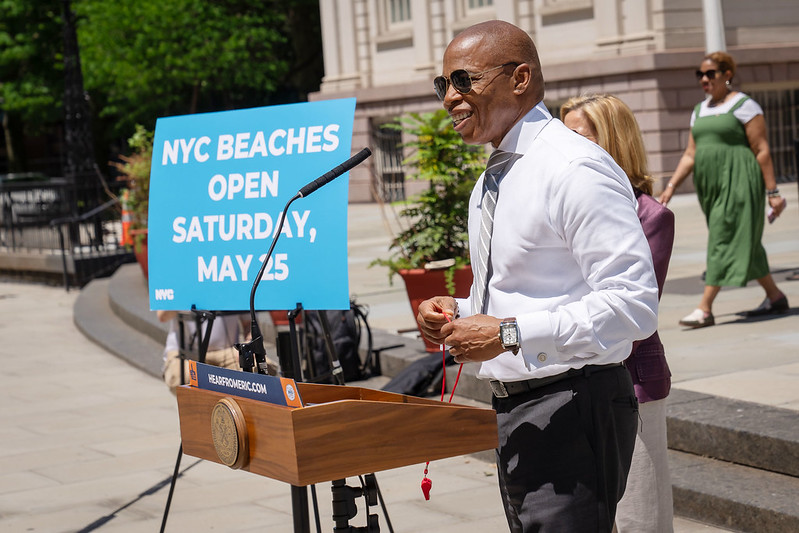He Doctored Documents To Get Bank Loans
The former chief investment officer of a Long Island Citybased construction supply company was sentenced to spend more than three decades in federal prison for his role in a bank fraud scheme.
U.S. Attorney for the Eastern District of New York said Rodney Watts, 42, of Bronxville-who previously worked for GDC Acquisitions LLC-was sentenced last Thursday, Apr. 24, in federal court in Brooklyn to 37 months in prison, to be followed by five years of supervised release.
As part of the sentence, Watts was ordered to pay more than $15 million in restitution and $18 million in forfeiture.
In May 2013, Watts was convicted following three weeks of trial by a federal jury on charges of bank, mail and wire fraud, conspiracy to commit bank, mail and wire fraud, and false statements.
Watts also served as the chief financial officer of GDC at one time.
According to Lynch, these charges arose out of the defendant’s scheme to defraud Amalgamated Bank, GDC’s asset-based lender, of $21 million in fraudulent loans.
Watts’ co-defendant, Courtney Dupree, the former chief executive officer of GDC, was convicted by a federal jury in December 2011 of similar charges. In June 2013, Dupree was sentenced to 84 months’ imprisonment to be followed by five years’ supervised release. As part of the sentence, Dupree was ordered to pay more than $15 million in restitution and $18 million in forfeiture.
“Instead of building their company through hard work and drive, Watts and his cohorts created the illusion of success for GDC based on lies and deceit. Watts then spent years propping up that illusion and using it to defraud a bank out of millions of dollars,” stated Lynch. “Executives who play fast and loose with corporate financial information should expect to be investigated and prosecuted to the full extent of the law.”
GDC, based in Long Island City, is a holding company that owns various subsidiaries, including JDC Lighting, a lighting distributor; Unalite Electric and Lighting, a lighting maintenance company; and Hudson Bay Environments Group, a furniture distributor.
According to prosecutors, Watts helped orchestrate a scheme to defraud Amalgamated Bank and C3 Capital, a mezzanine lender based in Kansas City, Mo., by obtaining and attempting to obtain loans on the basis of false financial statements and other material misrepresentations. He and others gave Amalgamated Bank false financial information for GDC in which they had fraudulently inflated the company’s accounts receivable in order to obtain initially, and then maintain, credit lines totaling approximately $21 million.
The defendant and his coconspirators inflated the accounts receivable by a variety of means, including recording in the corporate books sales that had never taken place.
For example, the defendant represented to Amalgamated Bank in writing in November 2009 that GDC had $25.2 million in accounts receivable when, in fact, it had only approximately $9 million.
In addition, the defendant and others defrauded Amalgamated Bank by causing GDC to acquire a company covertly, contrary to the terms of their loan agreement, and by concealing the acquisition from the bank.
The scheme unraveled when one of the accountants turned himself into the FBI and cooperated in the government’s investigation in an undercover capacity for approximately two months.
Lynch extended her grateful appreciation to the Federal Bureau of Investigation and the Postal Inspection Service, the agencies responsible for leading the government’s criminal investigation.
The government’s case is being prosecuted by Assistant United States Attorneys Catherine M. Mirabile and Brian Morris.
This prosecution was the result of efforts by President Obama’s Financial Fraud Enforcement Task Force (FFETF) which was created in November 2009 to wage an aggressive, coordinated and proactive effort to investigate and prosecute financial crimes.
With more than 20 federal agencies, 94 U.S. Attorneys’ Offices and state and local partners, it’s the broadest coalition of law enforcement, investigatory and regulatory agencies ever assembled to combat fraud.
Since its formation, the task force has made great strides in facilitating increased investigation and prosecution of financial crimes; enhancing coordination and cooperation among federal, state and local authorities; addressing discrimination in the lending and financial markets and conducting outreach to the public, victims, financial institutions and other organizations.
Over the past three fiscal years, the Justice Department has filed more than 10,000 financial fraud cases against nearly 15,000 defendants including more than 2,700 mortgage fraud defendants.
For more information on the task force, visit www.StopFraud.gov.


































